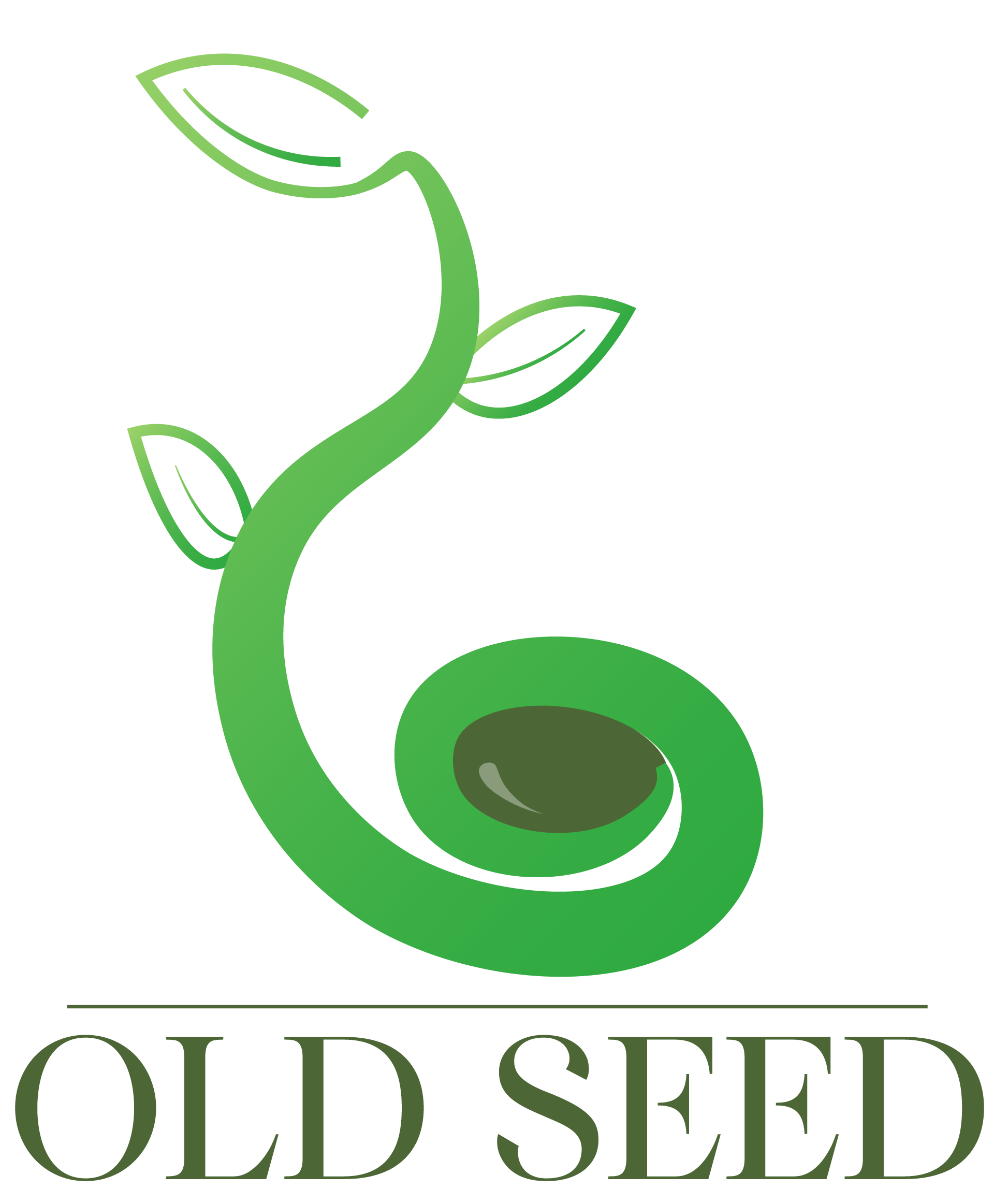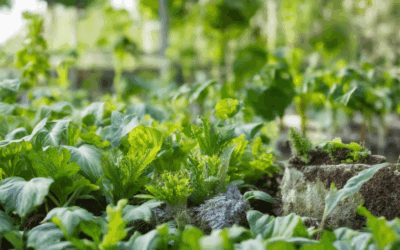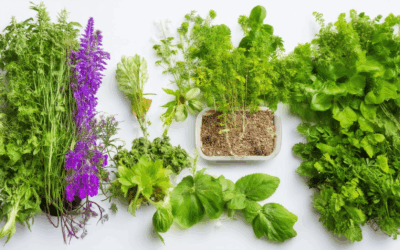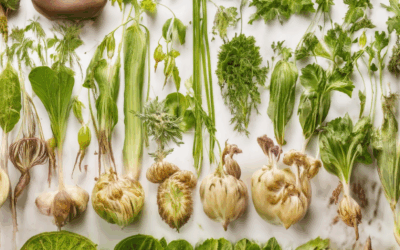Heritage seed exchanges play a pivotal role in preserving biodiversity and ensuring the sustainability of our food systems. As modern agriculture continues to evolve, the importance of heritage seeds—those passed down through generations—has never been more evident. These unique varieties, often referred to as heirloom seeds, offer a glimpse into the rich tapestry of agricultural history and provide invaluable genetic diversity that is critical for adaptability in changing environments.
While many enthusiasts and farmers alike recognize the significance of heritage seeds, there are still misunderstandings about their differences from heirloom varieties. For instance, while both terms evoke a sense of tradition and timelessness, they represent distinct approaches to plant breeding and conservation. Heritage seeds, often tied to cultural practices, carry deeper historical roots and are less standardized compared to heirloom seeds, which are selectively bred for specific traits.
This article delves into the complexities of heritage seed exchanges, exploring their role in fostering biodiversity and connecting growers with timeless plant varieties. We will examine the legal and ethical implications of seed saving, the challenges faced by those who cultivate heirloom seeds, and the contributions of prominent companies in promoting heritage seed programs. By understanding the nuances of these exchanges, we can better appreciate their impact on our food security and environmental health. Whether you’re a seasoned gardener or simply curious about sustainable farming practices, this exploration of heritage seed exchanges offers valuable insights into the past, present, and future of our agricultural heritage.
Key Takeaways
– Top Seed Companies Dominate the Industry: Major players like Bayer, Corteva, Syngenta, and BASF lead the global seed market, investing heavily in research and development for high-yield and disease-resistant crops.
– Stine Seed Leads in the U.S.: As the largest private seed company, Stine Seed is renowned for its quality seeds and innovative solutions, making it a top choice for farmers and gardeners.
– W. Atlee & Son: The Oldest Seed Company: Established in 1852, W. Atlee & Son is the oldest continuously operating seed business, symbolizing the rich heritage of American agriculture.
– Heirloom vs. Heritage Seeds: Heirloom seeds are historically preserved varieties passed down through generations, while heritage seeds emphasize biodiversity and traditional farming practices.
– Support Local Farmers and Seed Banks: Independent seed banks and local farmers preserve diverse seed varieties, promoting biodiversity and sustainable farming methods.
– Focus on Research and Sustainability: Leading companies prioritize research and development to enhance crop yields and sustainability, driving advancements in agriculture.
Why is it Illegal to Replant Seeds?
Replanting seeds is often restricted due to legal and ethical considerations surrounding intellectual property, environmental protection, and economic interests. Here’s a breakdown of the key reasons:
- Seed Patents : Many seeds are protected under intellectual property laws, particularly patents. These patents grant exclusive rights to the developers, preventing unauthorized use, including replanting. Violating a seed patent can result in legal action.
- Intellectual Property Rights : Beyond patents, breeders and companies invest significant resources into developing unique plant varieties. Protecting these investments ensures continued innovation and sustainability in agriculture.
- Genetic Pollution : Replanting seeds can lead to the spread of genetically modified organisms (GMOs), potentially contaminating non-GMO crops and harming organic production.
- Economic Impact : The seed industry relies on sales and licensing. Unauthorized replanting undermines this market, reducing revenue and discouraging investment in new seed varieties.
- International Laws : Various countries have strict regulations against replanting seeds without authorization, reflecting concerns over trade and market stability.
Farmers are encouraged to use approved seeds and to understand local regulations to ensure compliance while supporting sustainable farming practices.
Understanding Heirloom and Heritage Seeds
Heirloom seeds and heritage seeds are both special varieties of plants that have been carefully preserved and passed down through generations. While they share similarities, there are distinct differences between the two.
Heirloom Seeds
- Definition: Heirloom seeds are open-pollinated crops that have been saved and propagated by gardeners and farmers for decades or even centuries. These seeds are often cherished for their unique traits, hardiness, and ability to adapt to specific regions.
- History: Heirloom varieties are typically heirlooms because they have a documented history of stable performance in certain areas. They are often resistant to pests and diseases, making them ideal for organic farming and sustainable practices.
- Characteristics: Heirloom seeds are usually smaller in yield compared to hybrid varieties but offer greater genetic diversity and unique flavors or textures.
- Examples: Examples of popular heirloom crops include Amish Straight corn, Black Beauty eggplant, and Green Zebra tomatoes.
Heritage Seeds
- Definition: Heritage seeds are a term often used to describe heirloom varieties that have particular cultural, historical, or ethnic significance. These seeds may have a story tied to their origin, such as being brought to a region by immigrants or having a role in local cuisine.
- Difference from Heirlooms: While similar to heirlooms, heritage seeds often emphasize their cultural or ethnic background rather than just their agricultural qualities. For example, Romano beans are considered heritage seeds due to their connection to Italian tradition.
- Propagation: Like heirlooms, heritage seeds are usually propagated through saving seeds from previous years’ harvests, ensuring genetic stability and adaptation to local conditions.
- Examples: Heritage seeds include heirloom varieties like Italian Roma beans and Turkish Delight peppers, which have cultural significance in their respective regions.
Key Differences
- Cultural Significance: Heritage seeds often carry deeper cultural meanings, while heirlooms are primarily valued for their agricultural traits.
- Usage: Both are used in home gardens and small-scale farming, but heritage seeds may be chosen specifically for their cultural or ethnic associations.
- Propagation: Both rely on saving seeds, though heritage seeds may be more tightly linked to specific cultural practices.
Both heirloom and heritage seeds play important roles in preserving biodiversity and promoting sustainable agriculture. By choosing these seeds, gardeners contribute to the conservation of rare plant varieties and support eco-friendly farming practices.
For more information on heirloom and heritage seeds, visit our Old Seed website or explore our resources on sustainable gardening and seed preservation.
Disadvantages of Heirloom Seeds
Heirloom seeds, while celebrated for their historical significance and unique traits, come with certain drawbacks that gardeners and farmers should be aware of:
- Susceptibility to Diseases: Heirloom seeds often lack the genetic resistance to common pests and diseases that hybrid seeds possess. This means they may require more careful monitoring and maintenance to ensure healthy growth.
- Lower Yield Potential: Compared to hybrid or genetically modified seeds, heirloom varieties typically yield fewer crops. This can be a challenge for those with limited growing space or who rely on consistent harvests for livelihoods.
- Higher Germination Rate Variability: While hybrid seeds may have predictable germination rates, heirloom seeds can vary in their ability to sprout under different conditions. This unpredictability can affect planting plans and crop consistency.
- Lack of Uniformity: Heirloom seeds produce plants that may vary greatly in size, shape, and maturity times. This can complicate harvesting and processing, particularly for large-scale operations.
- Challenges for Home Gardeners: Their unique characteristics make heirloom seeds ideal for small-scale, diverse gardens, but they may require more attention and care compared to hybrid varieties.
Despite these drawbacks, heirloom seeds remain a popular choice for gardeners seeking to preserve biodiversity and enjoy the distinct flavors and characteristics of traditional plant varieties.
For more information on the benefits and care tips for heirloom seeds, explore our comprehensive guide .
The Four Major Seed Companies
The global seed industry is dominated by a few large corporations that play significant roles in the production and distribution of agricultural seeds. These companies have expanded their operations through mergers, acquisitions, and partnerships, leading to increased market concentration. Below is a list of the four major seed companies:
- Bayer
- Corteva
- Syngenta (part of ChemChina)
- BASF
These companies collectively control a substantial portion of the seed and agricultural chemical markets. Each of them has a strong presence worldwide, investing heavily in research and development to produce high-yield and disease-resistant crops.
Bayer, for instance, has been a leader in seed technology, particularly in traits related to herbicides and insect resistance. Corteva, formerly part of DowDuPont, focuses on seed treatments and pest control solutions. Syngenta, now under ChemChina, is known for its expertise in fungicides and herbicides. BASF, meanwhile, emphasizes sustainable agriculture and innovative seed solutions.
While these companies dominate the market, it’s important to support smaller, independent seed banks and local farmers who preserve heirloom and organic seed varieties. At Old Seed, we advocate for ethical practices in agriculture, recognizing the importance of biodiversity and sustainable farming methods.
For more information about these companies and their impact on the seed industry, visit their official websites:
Bayer
Corteva
Syngenta
BASF
What is the biggest seed company in the US?
Stine Seed is widely recognized as one of the most prominent seed companies in the United States. As the largest private seed company and the leading independent seed company in the country, Stine Seed has established itself as a trusted name in the agricultural sector. With a rich history dating back to 1864, Stine Seed has consistently delivered high-quality seeds and innovative solutions tailored to meet the diverse needs of farmers and gardeners across the nation.
The company’s commitment to excellence extends beyond its seed offerings. Stine Seed invests heavily in research and development, ensuring that their products are not only reliable but also contribute to sustainable farming practices. Their extensive catalog includes a variety of crops, from corn and soybeans to vegetables and specialty seeds, making them a go-to choice for many agricultural professionals and home gardeners alike.
While Stine Seed stands out as a leader, the seed industry in the US is also home to several notable competitors. Companies like Dow Seeds , Monsanto , and BASF are also major players, each bringing unique strengths to the market. These competitors often collaborate with Stine Seed to enhance crop yields and sustainability efforts, reflecting the collaborative nature of the agricultural sector.
In conclusion, while there are numerous reputable seed companies in the US, Stine Seed’s historical dominance, technological advancements, and dedication to customer satisfaction position it as a standout leader in the industry.
The Oldest Seed Company in the United States
The oldest known seed company in the United States is W. Atlee & Son, established in the mid-19th century. Founded in 1852, W. Atlee & Son has been a cornerstone of agricultural innovation and seed distribution for over 170 years.
Other notable seed companies with significant historical roots include:
- Burpee Seeds, founded in 1873, known for its extensive catalog of hybrid seeds.
- Ferry-Morse Seed Company, established in 1868, a leader in seed technology and sustainability.
- B.B. Wickson & Sons, dating back to the 18th century, though their current operations may vary.
These companies have played pivotal roles in shaping modern agriculture, contributing to advancements in seed breeding and sustainable practices. W. Atlee & Son, in particular, stands out as the oldest continuously operating seed business, reflecting the rich heritage of American agriculture.








0 Comments